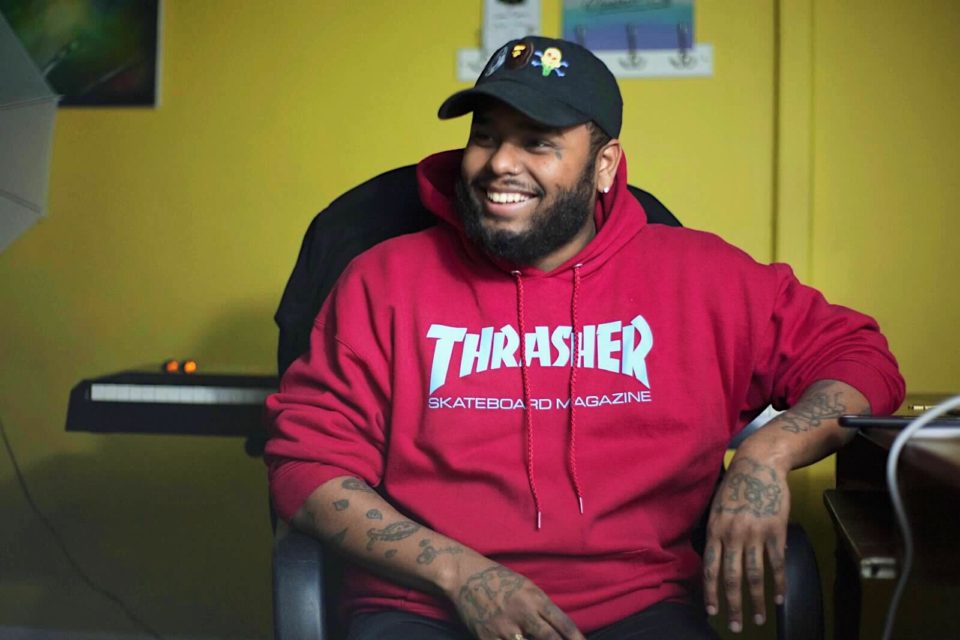
I first met Citoonthebeat in 2012 when we were introduced by colleague and friend Liveathehudson in the earlier stages of their production careers. My first impression was a bit pretentious, however, I did notice his intellect for music. 5 years later he’s still in the game and his success level is ascending. Cito has worked successfully with major label talents such as Jadakiss and Troy Ave, all while balancing his own artistry, managing a label, and raising a family. I sat down with Cito to talk about origins, marketing, and killing the ego in Jersey.
Suaso: How’d your name come about?
Cito: So my dad’s name is Ruben and my parents named me Ruben, also. In Latin households, the junior usually gets the “cito” attached to his name to distinguish the fact that he or she is the little one of the family, so everyone would call me Rubencito. Eventually, my cousins cut it in half and started calling me Cito and my friends picked up on it.
Suaso: Some artists feel they need to separate the person from the persona. You don’t feel the same?
Cito: I wouldn’t say that I don’t agree, I guess I just never went through that phase. I never thought to myself “what am I gonna call myself?” or tried to develop an alter-ego. When I started making music, someone asked me what I was gonna call myself and I said I was gonna call myself what everyone else calls me, Cito.
Suaso: Where are you originally from?
Cito: I’m originally from Jersey City, but I reside in Hoboken now.
Suaso: Do you come from a musical background?
Cito: I do actually, both my parents come from the church. My dad plays the piano, and my mother was and still is a church singer.
Suaso: How did you benefit from coming from a musical background?
Cito: I used to think all the music I heard on the radio or anywhere else was recorded with live instruments because that’s how I saw my dad do it. My dad helped me learn how to play different instruments and listen to music differently. So coming from a musical background benefitted me because I learned how to hear and play music live, and when I learned to use software, I knew what keys I wanted to record in, how to play them, as well as make them fit other artists.
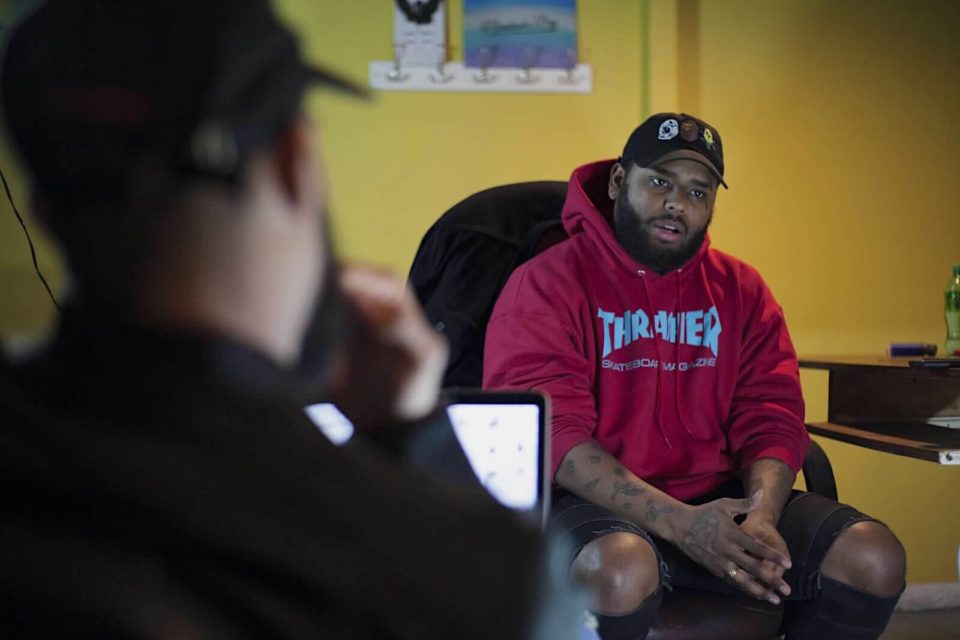
Suaso: When did you make your first production?
Cito: Funny story is, my family and Nelly-Nell’s family are close. When I was twelve, I got to see Nell producing and I immediately went back home and I told my parents to get me a piano that plays all the instruments for Christmas like his did. Of course, they had no idea what I was talking about and they bought me a cheap Casio piano because they didn’t know any better, and I wound up using that piano to make my first beat when I was twelve.
Suaso: How’d that go for you?
Cito: Oh man, that was rough for me because at that time I didn’t know how to loop or anything, so if I wanted the beat to be three minutes long I would have to play each sound for three minutes and then combine them together. The worst part is if I messed up or got something wrong towards the end, I would have to start it all over again. I never took the time to ask anyone for help, so after struggling with that for some time, someone taught me how to loop and the rest is history.
Suaso: I know that you are a musician, producer, song writer, rapper…
Cito: I’m not a rapper.
Suaso: But you rap on your songs? How do you correlate that?
Cito: I’m an artist. A rapper, to me is someone who, for example, gets asked to go on Funkmaster Flex and spit a freestyle. That’s not what I do. I rap on my songs, sure, but what I do is I take beats and I make records out of them as an artist. I use the art form of rap to create on a record.
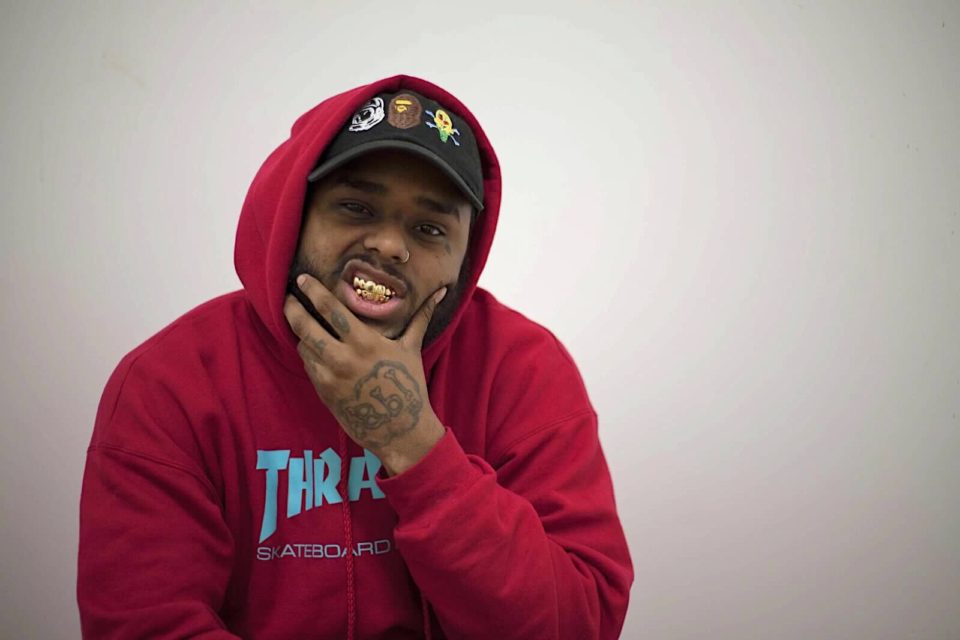
Suaso: We met around 2012-2013. You were really high energy. I thought it was a little too much and I didn’t get your style…
Cito: Really? Why?
Suaso: So I first came in the game under LIVE and I knew of you cause he had mentioned you a few times seeking advice when we would have sessions. I was premature in the world of artistry at the time and I still had a judgmental wall built up because I had never been in a room with another producer other than LIVE, plus I had known him for some time already. Now, after growing and tapping into my own creative capability, I’m more understanding of artistry and its many forms. Speaking of which, I know you’re a very trap-oriented artist when you rap. However, I’ve heard you produce different sounds because you come from an instrumental background. Why do you make trap music knowing you possess the ability to produce other styles for yourself?
Cito: Because I feel comfortable in that space. In order for me to make music I have to really enjoy what I’m making, first and foremost, and I really love trap music. I emphasize the word love because I identify with that culture. (wearing a sincere smirk on his face) I think in my past life I was a moreno who grew up in Atlanta. Another reason could be that I lived in Florida for two years and I had cousins that lived there, so I would visit often after I left. My cousins at the time were very into the No Limit Soldiers and southern rap. They were wearing grills, had dreads, and were living that lifestyle so I would bring that inspiration up here with me.
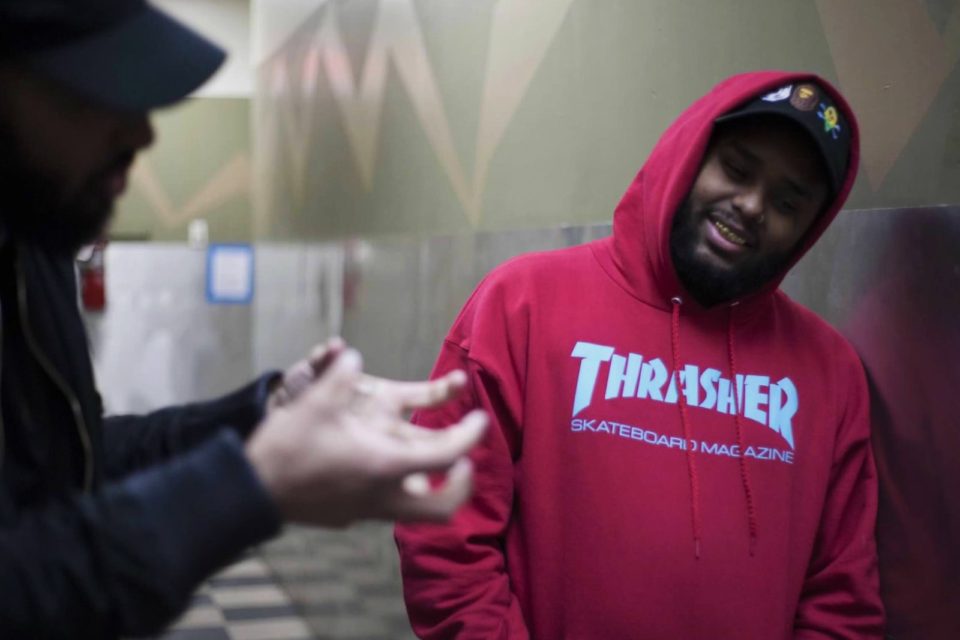
Suaso: I think that’s what it was at first. I didn’t understand the persona because you were already so immersed in it and I had no idea what the message was because I didn’t gravitate towards that culture the way you did. Now, I get it because of I’ve been watching and learning the whole time. As an artist, do you feel because you’re secure about yourself, your artistry, and you’re comfortable in that setting, that helps you market and brand yourself?
Cito: That’s exactly it because I know where I’m going. I have a vision of what I’m doing because I know where I’m comfortable making music. My good friend and business partner Jose told me when we first linked up to view myself as a product. Michael Jordan doesn’t sell toothpaste and Colgate doesn’t sell sneakers ’cause that’s not what they excel in. They could try and probably fail or be somewhat successful, but it’s not what they’re good at. I can make all kinds of records. I can make a pop, dance, or reggae song but that’s not what I excel in as an artist. I really love trap music and I’m really good at making it, and it’s what I know how to sell because I grew up in it. At this point, I don’t make music ’cause it’s fun anymore. I’m working on taking what I love to do and turning it into revenue.
Suaso: Do you feel like artists fail because of that?
Cito: Sometimes people get caught up having fun with it, which is great, don’t get me wrong. I love making music because it is fun, but there’s a difference between making music and being in the music business.
Suaso: When did you realize that you needed to be more active on the business side?
Cito: I realized I had been making music for so long and saw myself standing still. I’m making all these records and I’m still in the same place, and I’m watching people younger than me around the country in places where I felt like I should have been years ago. I took a meeting with Chaka Pilgrim, president of Roc Nation, two years ago and I played her my catalogue. When I was done, her advice to me was “you’re super talented ’cause I can hear it in the music, but,I don’t know what to do with you because you’re everywhere,” and I really took that hard ’cause she was right. And it wasn’t until now, at 27 years old, that I found my sound.
Suaso: Now that you’ve found your sound, whats the next move?
Cito: Well, I put out my most recent project “T.R.A.P (The Real Always Progress)”
https://soundcloud.com/citoonthebeat/sets/trap-ep
Suaso: Which is doing well…
Cito: Yeah, I found myself musically after that meeting, and I say that to say this: I started to see results when I focused on the sound I was really good at making and became serious about turning it into revenue.
Suaso: You also manage a record label, correct?
Cito: Yes, I do.
Suaso: How do you balance those roles and what are some responsibilities that come with that?
Cito: I feel like everything goes hand in hand. My partner Jose handles the financial side and I am the creative director. A lot of the artists we’ve brought on in the past are artists that I have worked with. He respects my opinion in that department, so me doing what I do everyday takes care of that.
Suaso: I feel like Jersey has a lot of talent, but there’s also a lot of ego in my opinion, which divides support. How do you view the hip hop scene in Jersey and where do you see it going?
Cito: Not to toot my own horn, but I feel like I’ve put in a lot of work for the state. I’ve always been open to working with other artists as well as lend a helping hand, and I think about how many times it’s been done for me and the number is close to almost never. I feel like a lot of these artists have egos and they haven’t accomplished anything, and if you haven’t accomplished anything yet but you’re working on yours, you should carry that humble hungriness with you instead acting like you’re the shit.
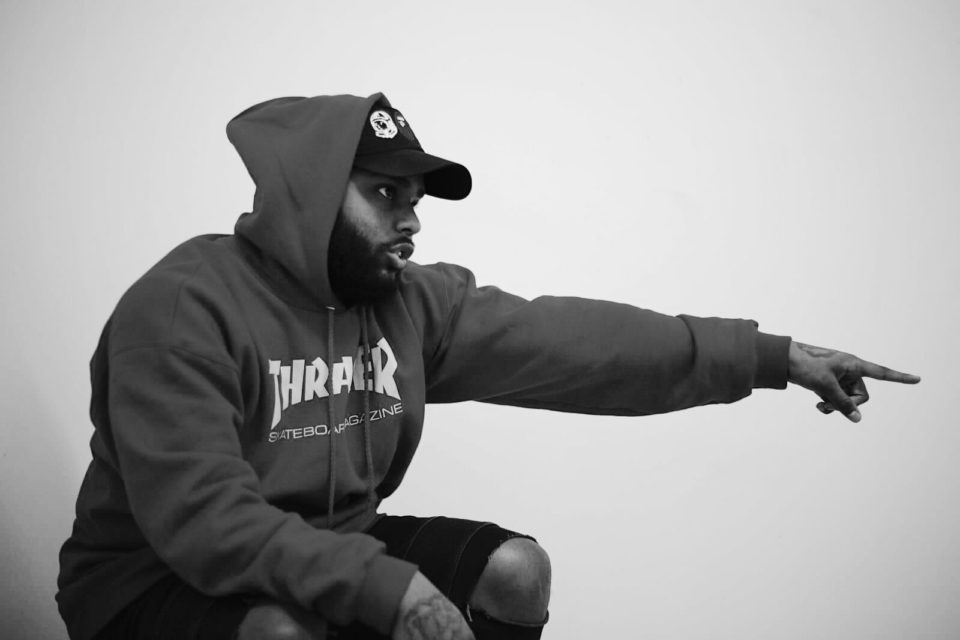
Suaso: Who was your musical influence?
Cito: My all-time musical influence is Pharrell Williams. He is the greatest in my eyes, from production to style and everything in between. He’s someone that I look up to and admire. The first time I saw him wear Bape I bought it, BBC, bought it. Everything he touches is simply amazing! Pharrell is single-handedly responsible for a lot of the trends that are around today. He made it okay to rap and look different.
Suaso: You feel like he shifted the game?
Cito: Absolutely.
Suaso: How do we shift the game in Jersey? How do we unify artists to support each other?
Cito: Being humble, collaborating, not being afraid of someone else’s criticism because we come from different towns within the same state. Opinions don’t matter, but as artists we should do a better job of respecting the opinions of other artists, because that’s how we build a bridge of communication and create support across artist camps. I feel like we have to be open to other people’s music. If I have a particular sound and someone has a different sound, how can we come together to find a medium? Doing things like that will create a shift in the game for the better and will help us get ahead.
Suaso: Now I know this question is a bit random, but I did some research on you and found out your favorite color is pink. Is that still accurate?
Cito: Haha! Yeah man, pink is still one of my favorite colors.
Suaso: Can you elaborate why?
Cito: I read and search a lot of weird things on the internet and one time, I landed on this article that was talking about colors and their meanings. I remember when I read what pink stood for, it said peace, open-mindedness, and intuition. Plus, at the time I was smoking a lot of weed and I believed myself to be a hippy, so I chose pink to be my favorite color because of its meaning.
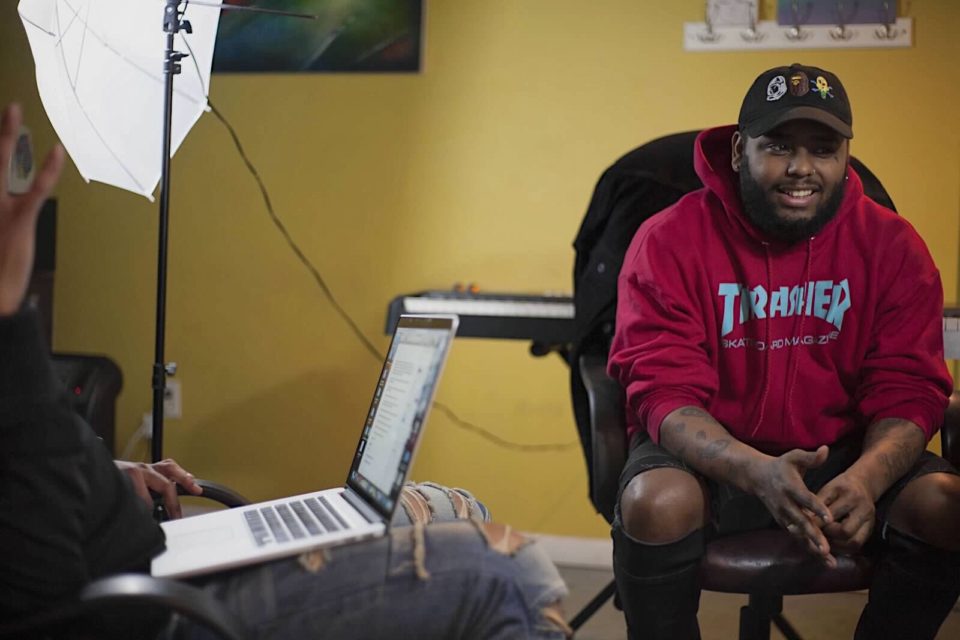
Suaso: We’ll get you out of here on this. Being in the music business is difficult. As a husband, parent, artist, and creative director of a label, what are some sacrifices you’ve had to make to get to where you are now?
Cito: Fun fact! I have never worked a nine to five in my life. At twenty seven I do not know what its like to have a boss. I trapped and made music my whole life. When I was younger and wasn’t making money, I sold a little weed but now I create revenue off my music. I turned my passion into a business. I remember my friends taking SATs and wondering about college, and my mind was always focused on building my own studio, making music, and starting a business from that. Obviously, my family was not happy about that. I had my first child at 19 years old. I remember wanting to give up my dream at that point because life was happening so fast and I remembered what everyone told me when I decided not to go to college, and I thought I was gonna have to get a job and go to school. Funny thing is, my mom was the one that said I didn’t have to do that. She told me not to feel like your kid is hindering you from doing what you want to do. Keep doing what you’re doing and we’ll help you.
Suaso: Did that give you the energy to keep going?
Cito: Without a doubt, because I felt like my family had my back. They rallied behind me and helped me make it work even though I had lost my studio at the time and was working off my laptop. I was going through it, but I had all the faith in the world that I was going to make it back and I did.
Suaso: Cito, thank you for sitting down with me and giving me the opportunity to learn more about you. Any shout outs before we get out of here?
Cito: It was a pleasure man, thank you. I wanna shout out ITS THE LABEL and NEVABROKEBOY!
Follow Cito on Soundcloud, Twitter, and Instagram.
You must be logged in to post a comment.